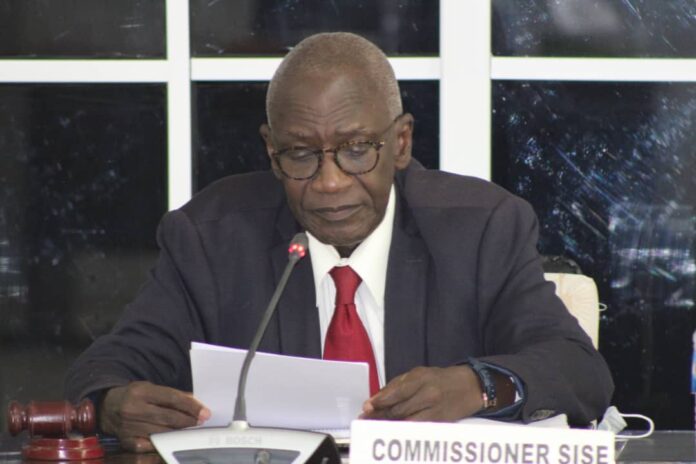By Nelson Manneh &Yankuba Jallow
The Chairman of the Truth Commission Lamin Sise has recently invited all persons who suffered human rights violations and abuses perpetrated by the State or its agents from the period July, 1994 to January 2017, to submit their complaints to the TRRC by 1 March, 2021.
He said: “Persons who have already submitted their complaints and have not testified publicly or privately before the Commission need not resubmit.”
This is to ensure that all genuine complainants are included in the TRRC process and that those persons granted victim status can be considered for reparations,” he said.
The TRRC Chairman said the process is in line with the TRRC’s mandate to grant reparations to an ‘applicant who is a victim upon consideration of the evidence received or obtained in order to restore the human and civil dignity of the victim (TRRC Act, 20.1)’
“The complaints must be in relation to the Commission’s mandate and this includes acts of torture, unlawful killings, sexual and gender based violence, enforced disappearances of persons, inhumane and degrading treatment, arbitrary arrest and detention without trial.”
All complaints must be submitted, in writing, to the TRRC. This can be done in person at the TRRC premises or during outreach missions, or via electronic communications,” he said.
Where necessary, Chairman Sise said the TRRC will provide free clerical, interpretation and psycho-social support to complainants or applicants reporting complaints.
He said the complaint form is available at the TRRC and on the TRRC website.
All complaints will go through a process of verification by the TRRC.
Sise said complainants who meet the eligibility criteria for victim status will be informed as well as applications that do not meet the criteria for granting of reparations.
“Where it is deemed by the Commission that the complainant does not qualify for victim status, this decision will be communicated to the complainant in writing stating the reasons why it was not approved. For complainants or victims who cannot read, a staff member of the TRRC will assist in reading the decision to such complainants,” he said.
He said complaints may be individual or collective. Collective reparations may be received by a group of persons that suffered violations or abuses due to one or more reasons relating to their group identity.
“An individual or group whose application has been rejected can resubmit the complaint after providing additional information and supporting material,” he noted.
He added that the call is an urgent appeal by the TRRC for complainants to submit their complaints within the specified period so that reparations are granted on a fair and transparent basis without any form of discrimination.


















